This is the web page of the Artificial Intelligence and Cyber Security track of the ABCP 2025 Annual Conference, to be held on 12-13th September 2025.
Venue
Teaching Block 6
How to join remotely?
Microsoft Teams
Meeting ID: 395 859 029 796 6
Passcode: ut2D9265
Programme
Friday 12th September 2025
| 1:40-2:30pm | Keynote (Chair: Professor Shujun Li, University of Kent) |
| 1:40-2:30pm | Media Provenance and Authenticity Professor John Collomosse, Professor of Computer Vision and AI & Director DECaDE: UKRI/EPSRC Centre for the Decentralised Digital Economy, University of Surrey, UK & Principle Scientist, Adobe Research, USA show more/less
Abstract:  Professor John Collomosse Provenance facts, such as who made an image and how, can provide valuable context for users to make trust decisions about visual content. Emerging standards and provenance enhancing tools such as watermarking promise to play an important role in fighting fake news and the spread of misinformation. In this talk we contrast metadata, fingerprinting and watermarking, and discuss how we can build upon the complementary strengths of these three technology pillars to provide robust trust signals to support stories told by real and generative images. Beyond authenticity, we describe how provenance can also underpin new models for value creation in the age of Generative AI. In doing so we address other risks arising with generative AI such as ensuring training consent, and the proper attribution of credit to creatives who contribute their work to train generative models. We show that provenance may be combined with distributed ledger technology (DLT) to develop novel solutions for recognizing and rewarding creative endeavour in the age of generative AI. Bio: Professor John Collomosse is a Senior Principal Scientist at Adobe Research, where he leads research for the Content Authenticity Initiative (CAI) and two cross-industry task forces within the C2PA open standards body for media authenticity. He is a professor at the University of Surrey, where he is the founder and director of DECaDE, the UKRI Research Centre for the Decentralized Creative Economy. His research focuses on media provenance to fight misinformation and online harms, and on improving data integrity and attribution for responsible AI. |
| 2:30-3:30pm | Session 1: Secure and Responsible AI (Chair: Professor Shujun Li, University of Kent) |
| 2:30-2:40pm | Agentic AI in Cybersecurity Dr Thomas TY Win, Associate Head of School of Computer Science and Engineering, University of Sunderland, UK show more/less
Abstract:  Dr Thomas TY Win Artificial intelligence is continuously reshaping cybersecurity, from anomaly detection and predictive analytics to automated response. Yet the next transformation lies in agentic AI—AI systems capable of autonomous, goal-directed action. Unlike conventional models that reactively flag threats or follow predefined scripts, agentic AI integrates reasoning, planning, and adaptive learning, enabling it to act as an intelligent partner in securing digital infrastructures. This talk will introduce the principles of agentic AI and illustrate how such systems can revolutionise cyber defence. Key applications include proactive threat hunting, autonomous malware analysis, real-time incident response, and red-team simulations that model Advanced Persistent Threats (APTs) before they materialise. Drawing on advances in multiagent architectures, reinforcement learning, and large language models, we will explore how agentic AI can continuously evolve strategies, making defences more resilient against adaptive attackers. Equally important are the challenges. As AI agents gain autonomy, the risks of adversarial manipulation, explainability gaps, accountability, and unintended escalation grow. The talk will examine governance and ethical frameworks needed to ensure safe deployment, as well as the continuing importance of human-in-the-loop oversight in high-stakes environments. By blending technical insight with critical reflection, this talk provides a balanced roadmap for researchers, practitioners, and policymakers. Participants will leave with a clear understanding of how agentic AI can move cybersecurity from reactive protection toward autonomous, adaptive defence, while recognising the safeguards necessary to deploy it responsibly in an era of escalating digital threats. Bio: Thomas Win is an Associate Head of School of Computer Science and Engineering at the University of Sunderland. He has contributed extensively to cybersecurity research, particularly in AI-driven security and Digital Twin technologies. His early academic journey began as a postgraduate researcher at Glasgow Caledonian University, where he developed novel solutions for Big Data and cloud security, including malware and rootkit detection using machine learning-earning an IEEE Best Paper Award. This work laid the foundation for his long-term focus on applied cybersecurity in virtualised and industrial environments. His research evolved into cybersecurity for Industry 4.0, with a particular emphasis on Digital Twins and threat intelligence sharing. This includes collaborative research outputs such as the IEEE Digital Twin 2023 conference paper and contributions to the ACM FAccT conference on privacy-preserving analytics. He has been involved with funded projects in AI security and Digital Twins, including collaborations under Innovate UK and the EU Horizon programmes. As Associate Head at the University of Sunderland, he works with international partners across Asia and Europe to design novel cybersecurity solutions with practical, real-world applications. He also supervises PhD students working on APT detection and secure virtualisation. He has worked consistently to bridge academic research with societal impact. Through my industry collaborations, he has helped design tools and strategies to improve the cybersecurity resilience of organisations, particularly in sectors exposed to emerging threats such as manufacturing and digital forensics. His public engagement includes speaking on AI security risks and mitigation strategies and advising on education reform in cybersecurity. He champions inclusive, industry-aligned education that equips learners with the skills to meet the UK and global demand for cybersecurity professionals. |
| 2:40-2:50pm | Reduce AI’s Carbon Footprint: Accelerating Deep Learning Models Dr Guosheng Hu, Senior Lecturer, University of Bristol, UK show more/less
Abstract: 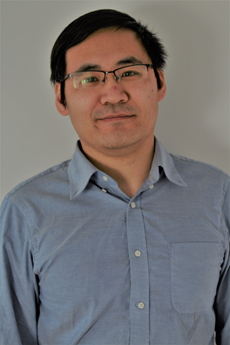 Dr Guosheng Hu AI-driven data centres, operating continuously and predominantly powered by fossil fuels, contribute significantly to global greenhouse gas emissions (2.5-3.7%). The widespread use of large foundation models such as ChatGPT exacerbates this environmental impact. This talk explores strategies for mitigating AI’s carbon footprint through model acceleration, aiming to significantly reduce computations while maintaining the accuracy of AI models. This session will spotlight various model acceleration techniques, including Neural Architecture Search, Knowledge Distillation, and others. Beyond academic advancements, the talk will also delve into successful industrial applications. Last, it will outline potential future research directions in the field of model acceleration. Bio: Guosheng Hu is a Senior Lecturer of AI at University of Bristol. Before that, he served as the Head of Research at Oosto (a leading visual AI company). Prior to his role at Oosto, he was a Research Fellow in the LEAR team at INRIA Grenoble Rhone-Alpes, France. Dr. Hu earned his PhD under the supervision of Prof. Josef Kittler at the University of Surrey, UK. His expertise lies in the intersection of computer vision and deep learning. With a robust academic background, he has published numerous research papers at major conferences and journals. |
| 2:50-3:00pm (Online) | Meeting Societal Challenges: Scalable AI from Edge to Cloud Professor Liangxiu Han, Professor of Computer Science & Academic Director of Centre for Digital Data Research & Faculty Lead for AI, Digital and Cyber Physical Systems Theme, Manchester Metropolitan University, UK show more/less
Abstract: 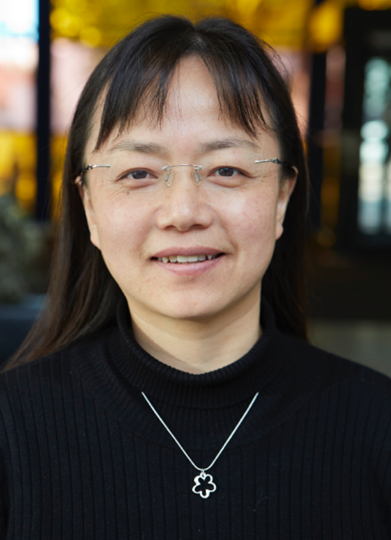 Professor Liangxiu Han This talk explores how scalable AI methods can support real-world impact by operating seamlessly across edge devices and cloud systems. It highlights how such approaches can make AI more adaptable, trustworthy, and responsive to the complex challenges faced by society today. Bio: Liangxiu Han is currently a full Professor of Computer Science at the Department of Computing and Mathematics, Faculty of Science and Engineering, Manchester Metropolitan University. She is Academic Director for Centre for Digital Data Research, Faculty Lead for AI, Digital and Cyber Physical Systems and Deputy Director of ManMet Crime and Well-Being Big Data Centre. Her research areas mainly lie in the development of novel big data analytics/Machine Learning/AI, and development of novel intelligent architectures that facilitates big data analytics (e.g., parallel and distributed computing, Cloud/Service-oriented computing/data intensive computing) as well as applications in different domains (e.g. Precision Agriculture, Health, Smart Cities, Cyber Security, Energy, etc.) As a Principal Investigator (PI) or Co-PI, Professor Han has a proven track record of successfully leading multi-million-pound projects on both national and international scales (supported by diverse funding sources: UKRI, GCRF/Newton, EU, Industry, and Charity) and has extensive research and practical experiences in developing intelligent data driven AI solutions for various application domains (e.g. Health, Food, Smart Cities, Energy, Cyber Security) using various large datasets (e.g. images, numerical values, sensors, geo-spatial data, web pages/texts). Professor Han has served as an associate editor/a guest editor for a number of reputable international journals and a chair (or Co-Chair) for organisation of a number of international conferences/workshops in the field. She has been invited to give a number of keynotes and talks on different occasions (including international conferences, national and international institutions/organisations). Professor Han is a member of EPSRC Peer Review College, an independent expert of European Commission for proposal evaluation/mid-term project review, and serves on proposal review and evaluation panels for UKRI, including EPSRC, BBSRC, and Innovate UK, and the British Council. |
| 3:00-3:30pm | Break & Refreshment (30 mins) |
| 3:30-4:00pm | Session 2: Advances in AI (Chair: Professor Huiru Zheng, Ulster University) |
| 3:30-3:40pm (Online) | World Modelling for Biology Professor Hui Wang, Professor & Director of AI for Bioscience Doctoral Programme, Queen’s University Belfast, UK show more/less
Abstract:  Professor Hui Wang This talk introduces world modelling and its link to causality, explores how biological world models can integrate data across scales, and showcases a GFlowNet-based approach for predicting protein — protein interactions as an example of generative discovery in biology. Bio: Hui Wang is Professor of Artificial Intelligence (AI) in the School of Electronics, Electrical Engineering and Computer Science; and Director of AI for Bioscience Doctoral Programme, Queen’s University Belfast. His research interests are machine learning, knowledge representation and reasoning, and their applications in image, video, spectra and text data analyses. Together with collaborators, he developed an algebraic framework for machine learning and knowledge representation, Lattice Machine; the new perceptionist interpretation of probability, Contextual Probability; a generic similarity measure, Neighbourhood Counting, and its specialisations for different types of data. He has over 390 publications in these areas. He is principal investigator of 12 regional, national and international projects (totalling £12m) and is co-investigator of several other projects (totalling £13m). He is an associate editor of IEEE Transactions on Cybernetics, founding Chair of IEEE SMCS Ireland Chapter (2009-2018), and a member of IEEE SMCS Board of Governors (2010-2013). |
| 3:40-3:50pm | Large Audio-Language Models Professor Wenwu Wang, Professor of Signal Processing and Machine Learning, University of Surrey, UK show more/less
Abstract: 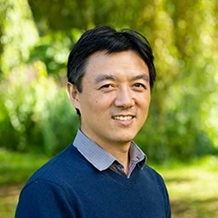 Professor Wenwu Wang Large Language Models (LLMs) are increasingly being applied to audio processing, enabling the interpretation and generation of complex sound data, including speech, music, environmental sounds, and non-verbal audio. When integrated with acoustic models, LLMs show strong potential in tackling a wide range of tasks such as audio captioning, generation, source separation, and coding. In this talk, we will explore how LLMs can address key challenges in audio understanding and generation. We’ll begin with an overview of recent advances and ongoing challenges in the field. Then, we’ll present a suite of tools developed for diverse audio tasks: audio generation, source separation, audio captioning, audio coding, and audio reasoning. The tools presented have been developed by Professor Wenwu Wang’s Machine Audition Lab, involving his PhD students, postdoctoral researchers, and collaborators, and are mostly open source. Bio: Wenwu Wang is a Professor in Signal Processing and Machine Learning and an Associate Head in External Engagement, School of Computer Science and Electronic Engineering, University of Surrey, UK. He is also an AI Fellow at the Surrey Institute for People Centred Artificial Intelligence. His current research interests include signal processing, machine learning and perception, artificial intelligence, machine audition (listening), and statistical anomaly detection. He has (co)-authored over 400 papers in these areas. His work has received numerous recognitions, including the 2022 IEEE Signal Processing Society Young Author Best Paper Award, ICAUS 2021 Best Paper Award, DCASE 2020 and 2023 Judge’s Award, DCASE 2019 and 2020 Reproducible System Award, and LVA/ICA 2018 Best Student Paper Award. He is a Senior Area Editor (2025-2027) for IEEE Open Journal of Signal Processing, and an Associate Editor (2024-2026) for IEEE Transactions on Multimedia. He was previously a Senior Area Editor (2019-2023) and an Associate Editor (2014-2018) for IEEE Transactions on Signal Processing, and an Associate Editor (2020-2025) for IEEE/ACM Transactions on Audio Speech and Language Processing. He was the elected Chair (2023-2024) of IEEE Signal Processing Society (SPS) Machine Learning for Signal Processing Technical Committee and a Board Member (2023-2024) of IEEE SPS Technical Directions Board. He is currently the elected Chair (2025-2027) of the EURASIP Technical Area Committee on Acoustic Speech and Music Signal Processing, and an elected Member (2021-2026) of the IEEE SPS Signal Processing Theory and Methods Technical Committee. He has been on the organising committee of major conferences including INTERSPEECH 2022, IEEE ICASSP 2019 & 2024, IEEE MLSP 2013 & 2024, and IEEE SSP 2009. He is Technical Program Co-Chair of IEEE MLSP 2025. He has been an invited Keynote or Plenary Speaker on more than 20 international conferences and workshops. |
| 3:50-4:00pm | Test-Time Retrieval-Augmented Adaptation for Vision-Language Models Dr Xinqi Fan, Lecturer in AI, Manchester Metropolitan University, UK show more/less
Abstract: 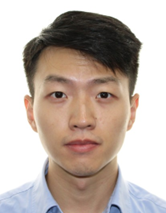 Dr Xinqi Fan Vision-language models (VLMs) have shown promise in test-time adaptation tasks due to their remarkable capabilities in understanding and reasoning about visual content through natural language descriptions. However, training VLMs typically demands substantial computational resources, and they often struggle to adapt efficiently to new domains or tasks. Additionally, dynamically estimating the test distribution from streaming data at test time remains a significant challenge. In this work, we propose a novel test-time retrieval-augmented adaptation (TT-RAA) method that enables VLMs to maintain high performance across diverse visual recognition tasks without the need for task-specific training or large computational overhead. During inference, TT-RAA employs a streaming mixture of Gaussian database (SMGD) to continuously estimate test distributions, requiring minimal storage. Then, TT-RAA retrieves the most relevant information from the SMGD, enhancing the original VLM outputs. A key limitation of CLIP-based VLMs is their inter-modal vision-language optimization, which does not optimize vision-space similarity, leading to larger intra-modal variance. To address this, we propose a multimodal retrieval augmentation module that transforms the SMGD into a unified multimodal space, enabling retrieval that aligns both vision and language modalities. Extensive experiments across both cross-domain and out-of-distribution benchmarks comprising fourteen datasets demonstrate TT-RAA’s superior performance compared to state-of-the-art methods. Ablation studies and hyperparameter analyses further validate the effectiveness of the proposed modules. Bio: Xinqi Fan is a Lecturer in Artificial Intelligence at Manchester Metropolitan University. He received the Bachelor’s degree from Southwest University, the Master’s degree from the University of Western Australia, and the PhD degree from the City University of Hong Kong. He was a visiting scholar at the Chinese University of Hong Kong and King Abdullah University of Science and Technology. His research areas are deep learning, computer vision, multimodal learning, and healthcare. He has published at CVPR, ICCV, MM, MICCAI and IEEE TIP. He is an organiser of a tutorial and a challenge at ICME 2025 and MM 2025. |
| 4:00-4:15pm | Break & Refreshment (15 mins) |
| 4:15-5:00pm | 5-min ECR Talks (Chair: Professor Huiru Zheng, Ulster University) |
| 4:15-4:20pm | TeMTG: Text-Enhanced Multi-Hop Temporal Graph Modeling for Audio-Visual Video Parsing Yaru Chen, PhD Student, University of Surrey, UK show more/less
Abstract:  Yaru Chen Audio-Visual Video Parsing (AVVP) task aims to parse the event categories and occurrence times from audio and visual modalities in a given video. Existing methods usually focus on implicitly modelling audio and visual features through weak labels, without mining semantic relationships for different modalities and explicit modelling of event temporal dependencies. This makes it difficult for the model to accurately parse event information for each segment under weak supervision, especially when high similarity between segmental modal features leads to ambiguous event boundaries. Hence, we propose a multimodal optimization framework, TeMTG, that combines text enhancement and multi-hop temporal graph modelling. Specifically, we leverage pre-trained multimodal models to generate modality-specific text embeddings, and fuse them with audio-visual features to enhance the semantic representation of these features. In addition, we introduce a multi-hop temporal graph neural network, which explicitly models the local temporal relationships between segments, capturing the temporal continuity of both short-term and long-range events. Experimental results demonstrate that our proposed method achieves state-of-the-art (SOTA) performance in multiple key indicators in the LLP dataset. Bio: Yaru Chen is a PhD candidate at the Centre for Vision, Speech and Signal Processing (CVSSP), University of Surrey, since 2022. Her research focuses on video understanding in natural scenes, particularly on audio-visual video parsing. During her doctoral studies, she has published several papers in conferences and journals such as ICASSP, ICMR, CVPR, and Information Fusion. |
| 4:20-4:25pm | Between Innovation and Regulation: The EU’s AI Governance in the Global Technological Rivalry Danni Zhang, PhD Student, Northeastern University London & University of Kent show more/less
Abstract:  Danni Zhang As artificial intelligence (AI) rapidly transforms global economic, social, and political landscapes, the European Union (EU) has emerged as the first entity to draft and publish the regulatory framework for AI – the AI Act – aiming to extend its influential role from data governance to AI regulation. Historically, the EU has established itself as a global leader in data protection by pioneering the Data Protection Directive (95/46/EC) and, more recently, the General Data Protection Regulation (GDPR) in 2018. While the fragmented regulatory approach in the United States and China’s relatively nascent digital landscape in the 1990s – 2010s left space for EU standards to take root that multiple countries and regional organizations regarded EU data protection policies as reference models. However, the EU’s approach to AI governance faces several challenges. Unlike the traditional security order dominated by international actors, the emerging digital order is heavily influenced by private actors with increasing political influence. More specifically, the huge high-tech companies, especially those in the United States (US) and China, often hold political and economic power comparable to that of smaller nation-states. In this competitive environment, the EU’s technology sector struggles to match the scale and influence of its US and Chinese counterparts. This talk focuses on whether the EU can continue to influence and shape international norms and standards amid intensifying technological competition between the US and China. Furthermore, it highlights the complex challenges that the EU faces in maintaining regulatory influence within a global digital ecosystem increasingly dominated by private-sector interests. Bio: Danni Zhang is a joint PhD researcher at Northeastern University London and the University of Kent, affiliated with the Institute of Cyber Security for Society. She has published in Politics and Governance and Asian Review of Political Economy. Her research focuses on global digital governance, with particular attention to the European Union and China in the areas of data governance, AI governance, and cybersecurity. |
| 4:25-4:30pm | Graph Neural Network Approach for COVID-19 Severity Classification and Microbial Biomarker Identification Jialin Lyu, PhD Student, Ulster University show more/less
Abstract: 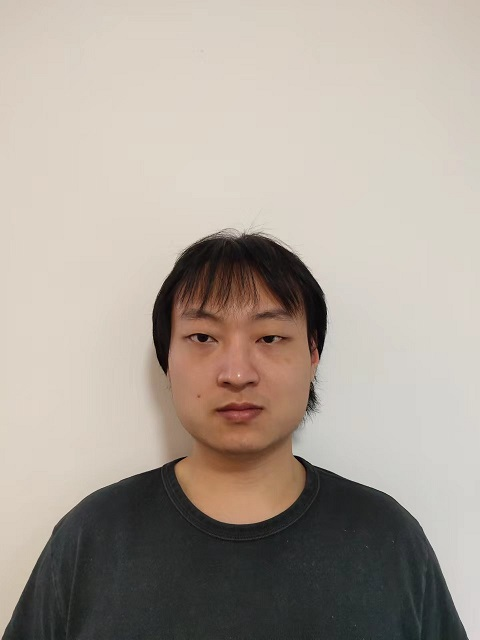 Jialin Lyu Alterations in the human microbiome have been linked to COVID-19 severity, yet the use of Deep Learning methods in this area has been limited, often due to small sample sizes. In this study, we analysed saliva microbiomes from a large cohort of samples and observed clear differences in microbial diversity between hospitalised and non-hospitalised individuals. Using a Graph Neural Network model, we classified hospitalisation status with higher accuracy than conventional approaches. Interpretation of the model highlighted microbial patterns associated with disease severity. These findings demonstrate the potential of Deep Learning-based analyses to uncover clinically relevant microbiome signatures and support improved risk stratification and personalised treatment strategies. Bio: Jialin Lyu received his MPhil degree in Computer Science at the University of Leicester, Leicester, UK. He is currently a PhD student in the School of Computing, Ulster University. His research interests include Machine Learning, Deep Learning, Bioinformatics and Computer Vision. |
| 4:30-4:35pm | Deep Uncertainty-Aware Framework for Drone Detection and Localization from Multi-Channel Audio Özkan Çaylı, PhD Student, University of Surrey show more/less
Abstract: Drones pose growing safety concerns in urban environments, yet classifying and localizing them from audio remains a challenge. In this talk, I present a deep learning framework based on Conformer that jointly performs drone classification and spatial localization while modeling prediction uncertainty with heteroscedastic loss functions. Our results show high classification accuracy, precise localization, and well-calibrated uncertainty estimates, demonstrating the promise of uncertainty-aware models for reliable drone monitoring. |
| 4:35-4:40pm (Online) | KG4Diagnosis: A Hierarchical Multi-Agent LLM Framework with Knowledge Graph Enhancement for Medical Diagnosis Kaiwen Zuo, PhD Student, University of Warwick show more/less
Abstract:  Kaiwen Zuo Integrating Large Language Models (LLMs) in healthcare diagnosis demands systematic frameworks that can handle complex medical scenarios while maintaining specialized expertise. We present KG4Diagnosis, a novel hierarchical multi-agent framework that combines LLMs with automated knowledge graph construction, encompassing 362 common diseases across medical specialties. Our framework mirrors real-world medical systems through a two-tier architecture: a general practitioner (GP) agent for initial assessment and triage, coordinating with specialized agents for in-depth diagnosis in specific domains. The core innovation lies in our end-to-end knowledge graph generation methodology, incorporating: (1) semantic-driven entity and relation extraction optimized for medical terminology, (2) multi-dimensional decision relationship reconstruction from unstructured medical texts, and (3) human-guided reasoning for knowledge expansion. KG4Diagnosis serves as an extensible foundation for specialized medical diagnosis systems, with capabilities to incorporate new diseases and medical knowledge. The framework’s modular design enables seamless integration of domain-specific enhancements, making it valuable for developing targeted medical diagnosis systems. We provide architectural guidelines and protocols to facilitate adoption across medical contexts. Bio: I am a second‑year PhD student in Computer Science at the University of Warwick and a PhD Enrichment Student at the Alan Turing Institute. I also serve as a Visiting Scholar at the University of Cambridge, Chief Operating Officer of Glacier Wisdom—a Tsinghua‑affiliated startup—and UK Regional Director of the Shenzhen Artificial Intelligence Industry Association. Before starting my PhD, I earned an MSc in Computer Science with Distinction from Newcastle University and a BEng from Beijing Jiaotong University (BJTU). I have published papers at top conference, including AAAI and ECIR. |
| 4:40-4:45pm | Imbalance-Aware AI for cybersecurity in credit fraud detection Simin Yu, PhD Student, Aston University show more/less
Abstract:  Simin Yu The rapid digitization of payments has expanded the cyber-attack surface for cyber-enabled money laundering (cyber-laundering), positioning Anti-Money Laundering (AML) as a core cybersecurity control rather than a purely compliance task. Financial institutions increasingly rely on AI to identify suspicious behavior, yet extreme class imbalance in transaction data degrades supervised models and can be exploited by adversaries who hide within legitimate traffic. Using the IBM (2023) simulated AML dataset, we benchmark ensemble learning—CatBoost, XGBoost, and Random Forest—under four imbalance mitigation strategies: SMOTE, ADASYN, Random Undersampling, and NearMiss. Performance is assessed with ROC-AUC, F1-score, Precision, and Recall, reflecting both detection strength and operational alert burden. Results show CatBoost consistently outperforms XGBoost and Random Forest across sampling regimes, achieving the most favorable precision–recall balance while maintaining strong ROC-AUC. Oversampling methods (SMOTE/ADASYN) generally raise recall without a prohibitive precision penalty, whereas undersampling (RUS/NearMiss) can improve sensitivity at the cost of alert inflation. Framed within a cyber defense workflow (e.g., SIEM/SOAR-assisted triage), these findings suggest that CatBoost paired with principled resampling can reduce analyst workload by prioritizing higher-quality alerts, strengthening the institution’s resilience against cyber-laundering. Bio: Simin Yu is a doctoral researcher at Aston University whose work sits at the intersection of cybersecurity, AI governance, and digital risk in the financial sector, with publications in Journal of Global Information Management and a presentation at FEMIB. |
| 4:45-4:50pm | Text-to-Audio Generation with Customised Contents Yi Yuan, PhD Student, University of Surrey show more/less
Abstract:  Yi Yuan Text-to-audio generation has advanced rapidly with diffusion and language-based models, but current systems often lack fine-grained control, limiting their practical use in real-world applications. In this talk, I introduce DreamAudio, a new framework designed for customized text-to-audio generation. By leveraging just a few user-provided reference audio samples, DreamAudio can generate new audio that faithfully reproduces specific sound events—making it useful in industrial scenarios such as personalised content creation, sound design, and accessibility tools. Bio: Yi Yuan is a third-year PhD student in vision, speech, and signal processing at the University of Surrey, supervised by Professor Wenwu Wang. His research focuses on deep learning for audio-related works, including audio generation, audio codec, and audio separation. He has contributed to several research works, including AudioLDM and FlowSep, which have been published at leading conferences such as ICML and ICASSP. In 2023, he achieved the top-1 ranking in the DCASE Challenge Task 7. He is a Graduate Student Member of IEEE. |
| 4:50-4:55pm (Online) | Beyond Gaze Interaction, Eye Tracking as a Tool for Cyber Security Dr Yaxiong Lei, Senior Research Officer (Research Fellow), University of Essex show more/less
Abstract: 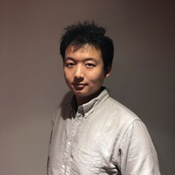 Dr Yaxiong Lei Eye tracking is no longer just an interaction modality in HCI and tool for marketing and psychological research; it is a behavioural signal for cyber security. This talk makes the case for leveraging ocular dynamics—saccades, fixations, pupil/eyelid rhythms, and gaze–head coupling—as robust, privacy-preserving defences. Drawing on my PhD at St Andrews and current postdoctoral work at the University of Essex (with collaborations at Oxford and Stanford), I will present recent results: (1) motion-aware, mobile gaze estimation that remains accurate in the wild; (2) micro-behaviour signatures for liveness and presentation-attack detection that resist replay, puppeteering, and GAN-based deepfakes; and (3) multi-modal verification that fuses gaze with IMU and facial dynamics to reduce equal-error rates under realistic attack models. Bio: Yaxiong Lei is a Postdoctoral Research Fellow at the University of Essex, collaborating on eye movement research with the University of Oxford and Stanford University. He holds a PhD in Computer Science from the University of St Andrews, where his work focused on mobile gaze tracking calibration and interaction on handheld devices. His research specializes in gaze estimation, eye-tracking technology, and human-computer interaction, with the primary goal of democratizing robust eye-tracking and gaze interaction on wearable and mobile devices. |
| 4:55-5:00pm (Online) | Statistical Certification and Uncertainty Quantification for Trustworthy Vision-Language Models Xiangyu Yin, PhD Student, University of Liverpool show more/less
Abstract:  Xiangyu Yin This talk presents a unified perspective on statistical certification for Vision-Language Models (VLMs), including randomized smoothing and distribution-free conformal prediction to deliver principled reliability guarantees. Specifically, randomized smoothing is applied in the visual embedding space to provide certified robustness against perturbations, offering model-agnostic applicability across diverse VLM architectures. Conformal prediction complements this by constructing finite-sample, distribution-free prediction sets, enabling calibrated control over error rates, hallucination risks, and harmful generations. Beyond certification, I will connect these methods to recent advances in uncertainty metrics, hallucination detection for large language models. Together, these approaches chart a path toward uncertainty-aware, trustworthy multimodal AI that is both theoretically grounded and practically scalable. Bio: Xiangyu Yin is a final-year PhD student at the University of Liverpool. His research focuses on adversarial machine learning, certification on large-scale generative models, and trustworthy AI. |
| 5:00-5:05pm (Online) | On the Limits of Adversarial Defenses in Personalized DreamBooth Generation Zhen Chen, PhD Student, University of Liverpool show more/less
Abstract: 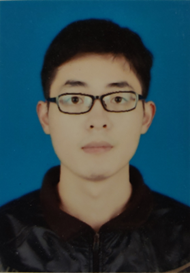 Xiangyu Yin Personalised AI applications such as DreamBooth enable the generation of customized content from user images, but they also raise significant privacy concerns, particularly the risk of facial identity leakage. Recent defence mechanisms like Anti-DreamBooth attempt to mitigate this risk by injecting adversarial perturbations into user photos to prevent successful personalization. However, the perturbations are highly fragile, as even simple, non-learned filtering operations can effectively remove them, thereby restoring the model’s ability to memorize and reproduce the user’s identity. None of the current methods maintains their protective effectiveness under realistic purification threats; thus, current defences offer a false sense of security and underscore the urgent need for more imperceptible and robust protections to safeguard user identity in personalized generation. Bio: Zhen Chen is a PhD in the Department of Computer Science at the University of Liverpool, supervised by Dr. Wenjie Ruan. He works on differentially private synthetic Image generation in diffusion models as well as enhancing the privacy of adversarially trained models. His research interests include adversarial training, differential privacy, and diffusion models. |
Organising Committee
- Professor Shujun Li (李树钧教授), University of Kent
- Professor Huiru (Jane) Zheng (郑慧如教授), Ulster University
- Dr Chongyan Gu (谷翀燕博士), Queen’s University Belfast
- Professor Baihua Li (李柏桦教授), Loughborough University
